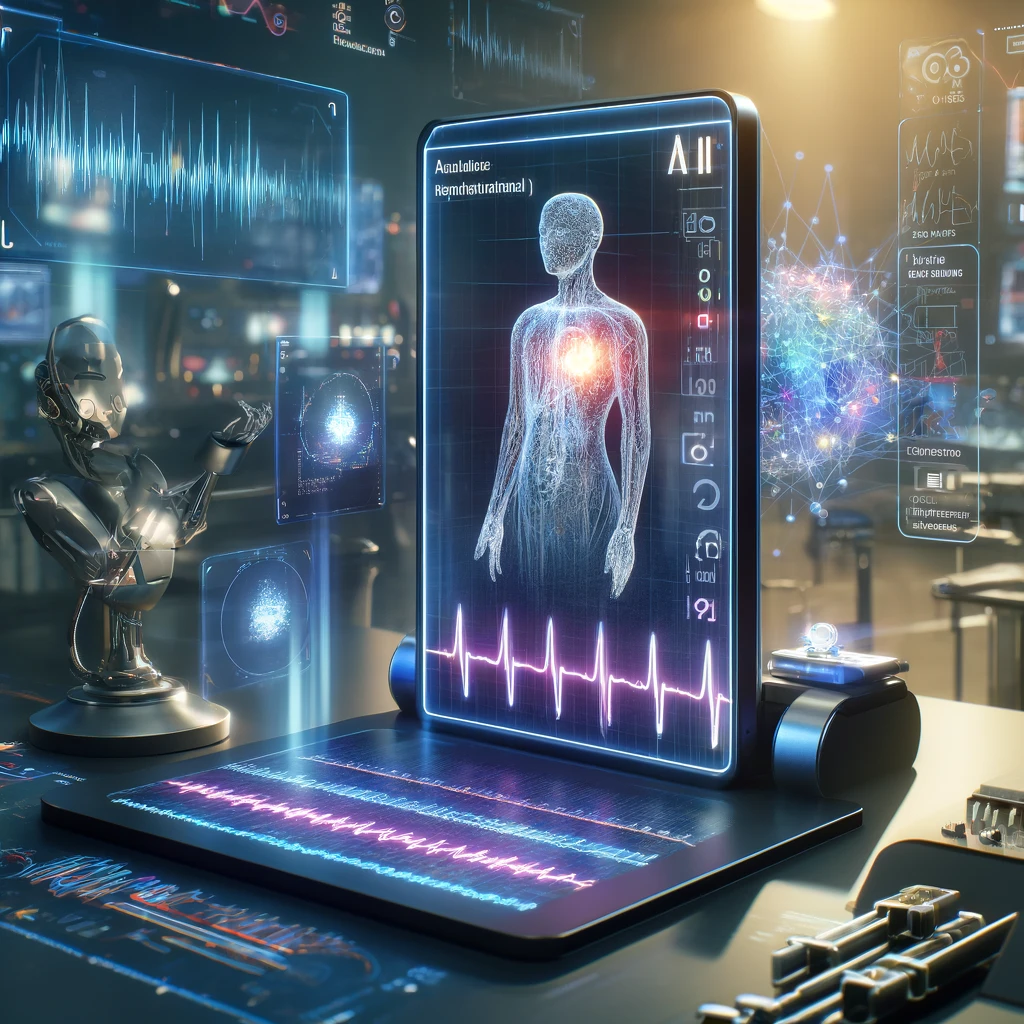In the ever-evolving landscape of healthcare, the integration of Artificial Intelligence (AI) is transforming patient care through groundbreaking advancements. Deep Learning, a subset of Machine Learning that utilizes neural networks, is at the forefront of this revolution, particularly in the realm of cardiology. This technology is enhancing the accuracy and efficiency of arrhythmia detection from electrocardiogram (ECG) data, marking a significant leap in medical diagnostics and treatment.

Unlocking New Insights in Healthcare with Deep Learning
Deep Learning’s capability to analyze vast amounts of medical data and uncover patterns invisible to the human eye is empowering physicians to combine their medical expertise with cutting-edge technology. This synergy accelerates patient treatment and opens new avenues for personalized care. Unlike traditional Machine Learning methods, Deep Learning excels in processing complex datasets, using neural networks to boost computational efficiency and accuracy, especially where conventional techniques stumble.
The Critical Role of ECG in Diagnosing Arrhythmias
Arrhythmias, such as Atrial Fibrillations, supraventricular tachycardia, Premature Ventricular Contractions (PVCs), and Atrial Premature Beats, exhibit wide variability and pose significant challenges in cardiac care. For instance, prolonged Atrial Fibrillations increase stroke risk, while continuous PVCs may indicate a looming heart failure. Monitoring patients with paced ECG beats is crucial due to the potential for severe complications.
Precision in ECG Signal Capture
Achieving precise ECG signal capture is paramount. Sampling frequencies must be finely tuned to preserve the integrity of ECG characteristics, with the Nyquist rate dictating that frequencies should surpass 100 Hz to accurately represent the highest ECG frequency of about 50 Hz. Moreover, noise reduction is essential to mitigate interference and maintain signal clarity, employing various preprocessing techniques to enhance the fidelity of ECG signals.
Cardiologists and Deep Learning: A Synergistic Approach
While the nuanced expertise of cardiologists in deciphering complex heart behaviors remains indispensable, Deep Learning significantly streamlines the detection of abnormalities within ECG datasets. This facilitates the development of more targeted patient care programs, bolstering cardiologists’ capacity to make swift, informed decisions without replacing their irreplaceable clinical judgment.
Advancements in Arrhythmia Detection Through Deep Learning
Deep Learning has proven particularly effective in identifying ECG arrhythmias, surpassing traditional numerical and mathematical methods. By converting ECG waves from datasets into grayscale images, this innovative approach enables the processing of data through two-dimensional Convolutional Neural Networks (CNNs). The models, trained and validated against renowned databases like MIT-BIH and PhysioNet, demonstrate remarkable accuracy in predicting wave rhythms and classifying diseases according to established standards.
Conclusion
The fusion of Deep Learning and cardiology signifies a monumental stride towards advanced patient care, offering a promising outlook for the early detection and treatment of arrhythmias. As technology continues to evolve, the potential for AI to enhance healthcare services knows no bounds, paving the way for more efficient, personalized patient care.